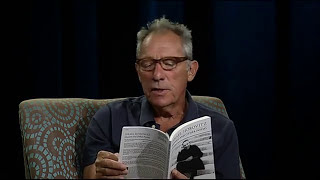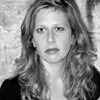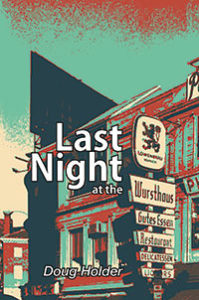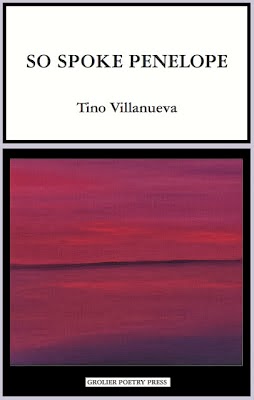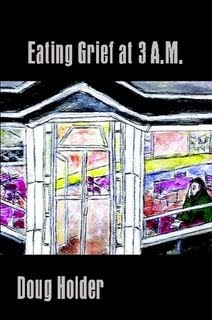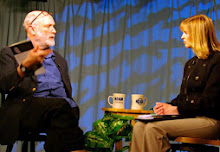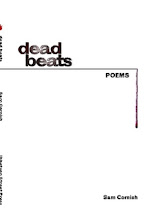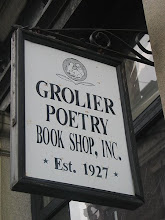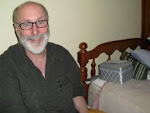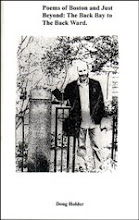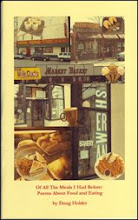 |
| ( Click on Pic to Enlarge) |
Thursday, October 26, 2017
Wednesday, October 25, 2017
Somerville Writer Daphne Kalotay to Read at the Boston Book Festival October 28th, 2017
 |
| Daphne Kalotay |
Daphne Kalotay is a novelist and short story writer who lives in Somerville, Massachusetts. She is known for her novels, Russian Winter (Harper, 2010) and Sight Reading (Harper, 2013), and her collection of short stories, Calamity and Other Stories (Doubleday, 2005), which was short listed for the 2005 Story Prize.
Earlier this year I was invited to fill a visiting position in Princeton’s Creative Writing program. I at first didn’t know how exactly it could work, since it would mean spending the 12 weeks of each semester in Princeton half the week. But I often take temporary teaching positions, since otherwise I have to scramble for things like health coverage. And this was a chance to work not only with bright students but also an amazing faculty I might otherwise not get to know, and to have a good salary and healthcare. So I accepted and am really glad. It’s been a terrific semester and is really stretching me as a teacher, which is an unexpected plus.
I have been a panelist at the Boston Book Festival, and enjoyed it very much. The festival is very much in sync with the spirit of the city. Boston has a very unique literary sensibility--how would you describe it?
In one word: nerdy. Which I mean as the highest compliment. On the one hand there’s that conservative side that perhaps goes back to the 19th century “Banned in Boston” tradition and to the influence of programs like Boston University’s MFA program, where I studied and which historically has tended to favor less experimental fare. But there’s also an exuberant seriousness about literature here that’s pretty unique and wonderful. By that I mean that both readers and writers here seem to embrace all kinds of writing with genuine intensity.
You have a short story "Relativity" published for the "One City One Story" component of the festival. Tell us a bit how you connected with the festival, and why you chose to have it as a premiere publication at a festival rather than a literary magazine?
Last winter, I saw a call for submissions for “One City One Story,” which I was already familiar with and think is such a fantastic way to reach out to a whole new community of readers. I’d attended the event in the past and had read most of the previous stories, so I knew they liked stories with something New England in them—and I had just finished writing “Relativity,” which features a social worker visiting various Boston neighborhoods and also has a subtle Puritan sub-theme. I knew it was a good story that would probably stand out, but I also supposed the subject matter might come across as too dark for a community read. Anyway, I submitted it to the contest as well as a couple of journals. When the BBF selected it, I had to withdraw it from one of the journals, but The Florida Review said that since the Festival is local, they still wanted to publish it, so it will appear there this winter. And while appearing in a journal with a national readership is always great, there was no question in my mind about premiering it at the festival. The fact that the judges didn’t shy away from a story that confronts painful material, including metaphysical mysteries like birth and death, and existential mysterious like human cruelty and kindness, shows the great respect they have for Boston’s readers: that readers understand that reading means being open to things that might be uncomfortable.
You have chosen a 99-year-old Holocaust survivor as the protagonist of your story. What brought you there?
She is based on my 100-year-old grandmother, who died just last week via medically-assisted dying, which is legal in Canada; otherwise, like the protagonist of my story, she would probably still be here, though less and less comfortably—so she chose to go out when and as she wanted. Which is a great contrast to the fact that during the Holocaust an entire government was actively trying to kill her, along with my father and his sister, who unlike their father—my grandfather—also survived. I’m acutely aware that most of that side of my family was killed and that there are so many people and stories I’ll never know. My grandmother to me is a symbol not just of survival but of the fragile link to these long-ago people and stories.
Tuesday, October 24, 2017
The Sunday Poet: Bridget Galway
 |
| Bridget Galway |
Bridget Seley- Galway artist/poet- Her art has graced several covers of Ibbetson Press, Bagels with the Bards, and individual poet collections of Doug Holderand Molly Lynn Watt. Her poetry published in 2009-16, Bagel with the Bards, Ibbetson Press #34 and #39, #41,2016 Poetry Porch, and featured on WOMR 2001-02 Provincetown Poetry Corner. She has exhibited throughout New England. From 2009-12 was arts editor/curator for Wilderness House Literary Review. In 1990 co-founded/directed El Arco Iris free arts center in Holyoke. In 2014 procured funding, established/facilitated Youth Arts Arise free after school arts program at Arts
at the Armory in Somerville. Ma.
Summer’s Dusk to City Night
The air’s cooled blanket
waves over my skin with the breeze.
I look up to the leaves quiver in response,
and higher still to the bright half Moon
peaking through gray blue to waning light-
as it expands down,
to disappear behind a mix of architecture,
where the sun has since set.
An hour ago everything was different,
when the light was glaring before the end of day.
Now I turn to the Moon reflected in a blackened window,
creating another curtain to peak through.
Now the night couples city lights,
from shops, strangers windows, and cars passing;
soften the landscape of brick and cement.
Now my imagination expands into endless stories,
separate from mine, beyond my before.
Bridget Seley-Galway
Subscribe to:
Posts (Atom)



